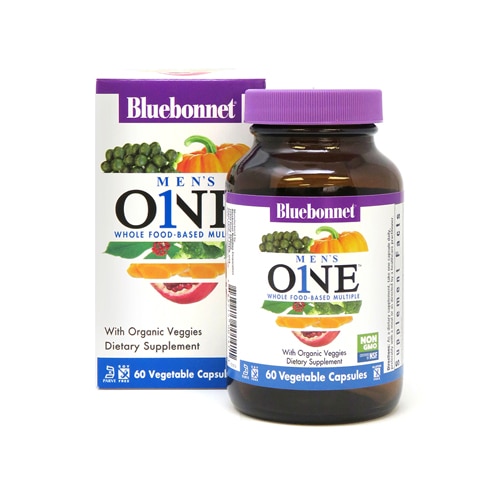Vitamin D comes from a readily available source — the sun. Yet about 1 billion people around the world suffer from vitamin D deficiency. One estimate indicates deficiency of the so-called “sunshine vitamin” afflicts more than 34 million Americans.
A study published in 2012 in the Journal of Pharmacology & Pharmacotherapeutics underscores that the “pandemic” of vitamin D deficiency stems primarily from lifestyle and environmental factors that reduce exposure to sunlight. Sunlight is required for UVB-induced production of vitamin D in the skin.
Which health problems are tied to vitamin D deficiency?
So, what are the possible health consequences of vitamin D deficiency? The Cleveland Clinic and the Mayo Clinic say a lack of vitamin D is associated with:
- Chronic pain
- Heart disease
- High blood pressure
- Immune system disorders
- Infections
- Osteoporosis
- Multiple sclerosis
- Rheumatoid arthritis
- Some types of cancer, such as breast, colon and prostate
- Type 2 diabetes
The Mayo Clinic points out that “an association does not mean low vitamin D causes these conditions, or that taking a vitamin D supplement will adequately prevent or treat them.”
Keep in mind that no clinical studies have shown that vitamin D is effective in treating or preventing COVID-19, the potentially deadly disease caused by the novel coronavirus. In fact, a report published in the journal BMJ Nutrition, Prevention & Health cautions that taking mega-doses of vitamin D in an attempt to ward off COVID-19 can be harmful.
“It is absolutely essential that advice given to the public is evidence-based, accurate and timely; anything less would mislead and has the potential to cause harm,” the report says. “Popular information channels, such as social media platforms, have been rife with misinformation that has been perpetuated by fear and uncertainty. This has been the case particularly for diet and lifestyle advice.”
What is vitamin D deficiency?
Simply put, vitamin D deficiency means you’re not getting enough of this vitamin to stay healthy, according to the U.S. National Library of Medicine. One of the key benefits of vitamin D is it helps absorb calcium, which strengthens bones and teeth. It also helps maintain your immune, muscle and nervous systems, the National Library of Medicine says.
According to Harvard University’s T.H. Chan School of Public Health, those susceptible to vitamin D deficiency include people with eating disorders, people who’ve undergone gastric bypass procedures, pregnant and lactating women, dark-skinned people and people who regularly cover their skin when they’re outdoors.
How to get the right amount of vitamin D
If you’re seeking to legitimately enhance your health, how do you ensure you’re getting enough vitamin D? The Cleveland Clinic outlines three ways:
- Sun exposure. Experts suggest 15 to 20 minutes of exposure three days a week.
- Nutritional supplements.
When it comes to food, the Cleveland Clinic explains that vitamin D doesn’t occur naturally in most foods. But some foods are natural sources, including:
Some foods also are fortified with vitamin D:
- Dairy milk
- Milk alternatives made from soy, almonds and oats
- Yogurt
- Orange juice
- Breakfast cereal
For most Americans, fortified foods represent the primary source of vitamin D.
Nutritional supplements also can boost your vitamin D intake.
As outlined by the National Library of Medicine, here are the recommended dietary allowances (RDAs) of vitamin D, expressed in international units (IU):
- Infants up to 12 months old — 400 IU
- Children 1 to 13 years old — 600 IU
- Teens 14 to 18 years old — 600 IU
- Adults 19 to 70 years old — 600 IU
- Adults age 71 years and above — 800 IU
- Pregnant and breastfeeding women — 600 IU
These recommendations cover food, multivitamins and vitamin D-only supplements. The Mayo Clinic notes that 1,000 to 2,000 IU per day of vitamin D from supplements is generally safe for adults.
The danger of vitamin D toxicity
Vitamin D can be too much of a good thing, though. The National Library of Medicine warns that excess vitamin D (known as vitamin D toxicity) can cause nausea, vomiting, poor appetite, constipation, weakness, weight loss, kidney damage and high levels of blood calcium.
“Most cases of vitamin D toxicity happen when someone overuses vitamin D supplements,” the National Library of Medicine says. “Excessive sun exposure doesn’t cause vitamin D poisoning because the body limits the amount of this vitamin it produces.”
According to the T.H. Chan School of Public Health, it’s unclear whether taking amounts of vitamin D beyond recommended daily amounts is beneficial in disease prevention.
“Although observational studies see a strong connection with lower rates of certain diseases in populations that live in sunnier climates or have higher serum levels of vitamin D, clinical trials that give people vitamin D supplements to affect a particular disease are still inconclusive,” the T.H. Chan School of Public Health says.




